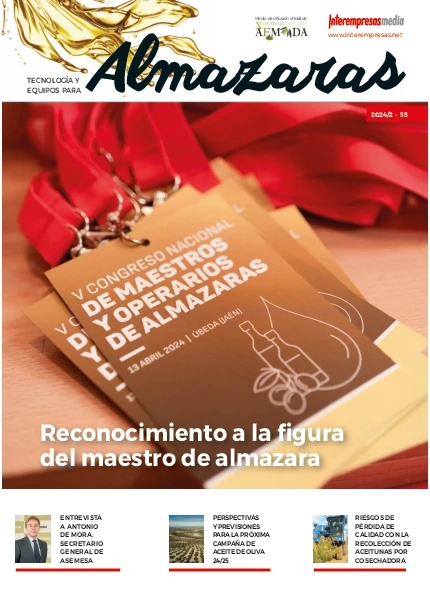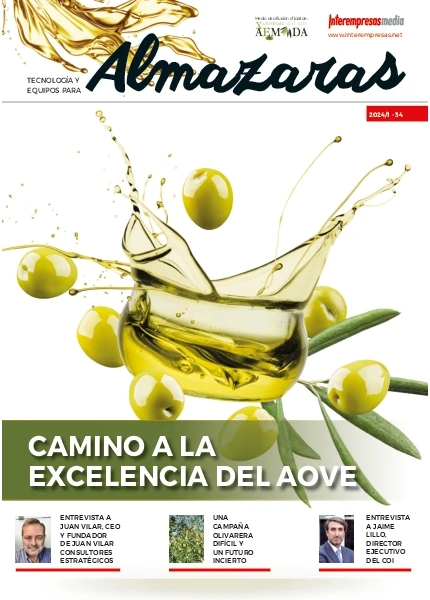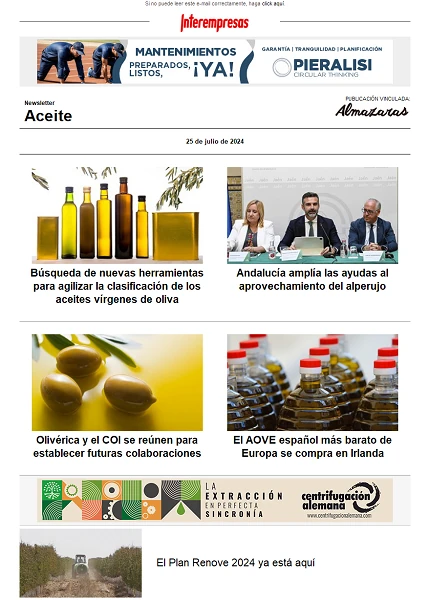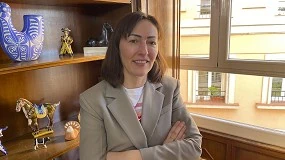Interview to Javier Lara of Miguel, director of the Department of Oil of Oliva, Olive and Cotton of Cooperatives Agro-alimentary

How it has closed the sector the campaign 2011/12?
Definitely, has been a campaign of records: record of production —with 1.614.300 tonnes—, record of available oil for the market—with 2.150.000 tonnes— and record of exits of oil to the market —with 1.460.000 tonnes—, especially because of the increase of the exports.
Of how much are speaking?
The exports in the campaign 2011/12 have supposed also an absolute record, reaching already the figure of 875.500 tonnes and represent 60% of the exits of olive oil to the market.
Which are the main destinations?
Italy is the main destination. To this market has allocated 45% of our exports in the campaign 2011/12. They are still in him importance Portugal (10,5%), United States (9%), France (8,5%) and United Kingdom (4,0%). China has grown a lot in this campaign and supposes already 3% of our exports, followed of Australia (2,6%), Japan (2,3%), Brazil (1,9%) and Russia (1%), that would close the list of the 10 main countries to which export. In total, these 10 countries suppose 89,7% of the Spanish exports.
A success…
Yes, if it did not go by the fault of profitability for the agriculturalist in the four last campaigns.
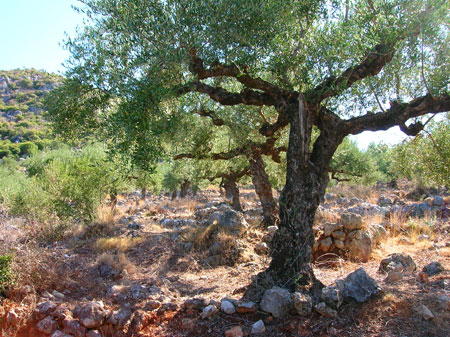
But how it is possible? You speaks of record year...
The available prices of the olive oil are underneath of the cost of production. The producers are conscious of the weakness of the producing sector in front of the fortress of the industry and the distribution, that are those who impose the prices in front of a producing sector very atomizado and desorganizado.
Also consider that the efforts that realise in obtaining oils of the best quality do not see recompensados economically in front of the small difference of prices in origin between the categories of higher virgin —quality extra and virgin— and the lampante, that is the base for the manufacturing of the designated ‘Oil of Oliva – contains exclusively oils of olive refinados and oils of virgin olive'. In the zones with olivares of low performance is necessary a complement of help to be able to keep the crop the olivar.
It does not believe sufficient the support that receives the sector?
The helps established in the Community Agricultural Politics, PAC, help of important way to improve the incomes of the producers. Thus, it is fundamental that in the new reform of the PAC, that is debating at present, take into account the peculiarities of the crop and keep the current level of helps.
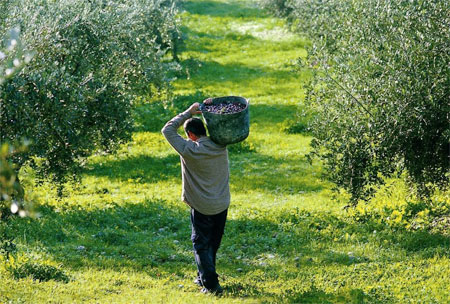
And the one who receives of our own administrations?
Is true that in Spain the Administration in his group considers to the of the olive oil like a strategic sector and prioritises it in many of his performances. However, it does not exert an effective leadership in front of the European institutions to modify the rule that adapt to the needs of the group of the Spanish sector, for example, in front of the disequilibrium of the chain of value, the establishment of measures of regulation of the market or of structuring of the producing sector.
Spain is the producing elder of olive oil of the world, but thinks that enjoy of the international fame that corresponds us?
Spain enjoys of a big prestige by the quality of his oils. This does that Spain have the greater quota of market in the greater part of the importing countries of olive oil, especially in the emergent markets. It is true that Italy enjoys of a high prestige, mainly in mature markets as it is the case of United States or Germany, but have to take into account that good part of the olive oil that consumes in Italy or exports from Italy is of Spanish origin. As it aimed, in this campaign 2011/12 Italy mattered 380.000 tonnes of oil of Spanish olive.
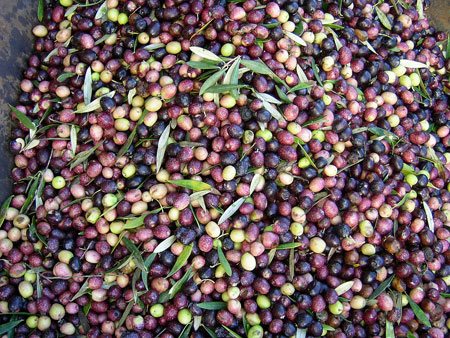
What differentiates to our oil of the ones of other countries competitors? Which are our virtues?
The productive structure of the olivar is more competitive that the one of the rest of countries and, therefore, this is a baza fundamental that does that the oil of Spanish olive was the world-wide reference. We have the most modern installations of the world and the most indicated technology to obtain the maximum quality. The fact to have the olivar more extensive of the world awards to our oils a series of peculiarities. It is the country that has greater number of cultured varieties and, therefore, the one of greater variability regarding qualities organolépticas, what allows us have oils adapted to the needs of any market.
Which are the tendencies regarding consumption of olive oil in Spain? And in the world?
In Spain gives the paradoja that the greater consumption is the one of the category ‘Oil of Oliva – contains exclusively oils of olive refinados and oils of virgin olive', that is the one of lower quality, with a quota of market around 60%. To measure that the consumer knows the difference between the distinct categories bends by the ones of greater quality: extra virgin and virgin. Little by little, the consumption of oil of virgin olive and, especially, extra virgin goes winning terrain. In the world, on the contrary of what occurs in Spain, is the the one of extra virgin the category that more consumes .
To what new challenges confronts the sector in the actuality?
As it commented, the current atomisation of the producing sector and the disequilibrium of the chain of value in favour of the industry and the big distribution do necessary to adopt measures of structural character that allow to the producing sector can compete in equality of conditions. Definitely, the concentration of the offer and the cooperative integration are the tools that will allow to win a volume that do us notable in the market. Like this, we will win efficiency and, especially, power of negotiation.
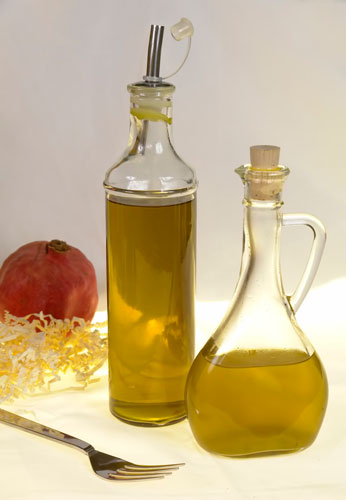
On rules and laws
This sector has of abundant specific rule that “no always is adapted to his needs”, since it treats of “a very dynamic sector, whose productions have grown a lot in the last years”.
For Javier Lara of Miguel the rule does not contemplate measures that allow to the sector autorregularse with the object to give stability to the market. “The ‘vecería' characteristic of the olivar ocasiona some strong altibajos in the prices that do not favour neither to the producers neither to the consumers”, sustains the director of the Department of Oil of Oliva, olive and cotton of Cooperatives Agro-alimentary. Thus, it explains, it would be necessary to modify the community rule and the norms of Defence of the Competition, establishing norms of regulation of market.
In front of the atomisation of the producing sector and the disequilibrium of the chain of value in favour of the industry and the big distribution, Javier Lara of Miguel sees necessary to adopt measures that allow to the producing sector structure to be able to compete in equality of conditions. “The projects of Law prepared by the Ministry of Agriculture to improve the operation of the chain of value and the one of cooperative Integration can be a starting point to improve this sector”.
Also considers important to improve the rule of labeling and, in concrete, the denominations of the distinct categories to allow to the consumer know the product that really are buying. Likewise, “it is necessary to improve the politics of control of the fraud with effective controls, no only based in the analytical, but also in the control of accounting of the companies”.
Another of the pending subjects for Javier Lara of Miguel is the regulation of the rule of commercialisation. “It is necessary to give juridical guarantee to the envasadores and establish that the manager of the quality of the product was the fork of the oil. In the actuality, the responsibility of the quality is of the envasador until it arrives to the consumer, independently of the conditions of conservation to which are subjected.


